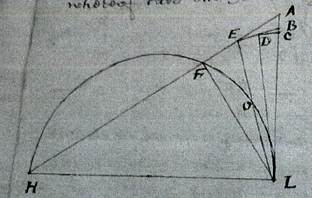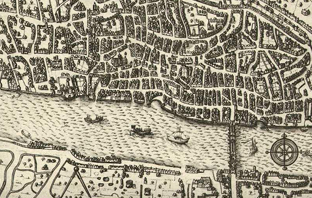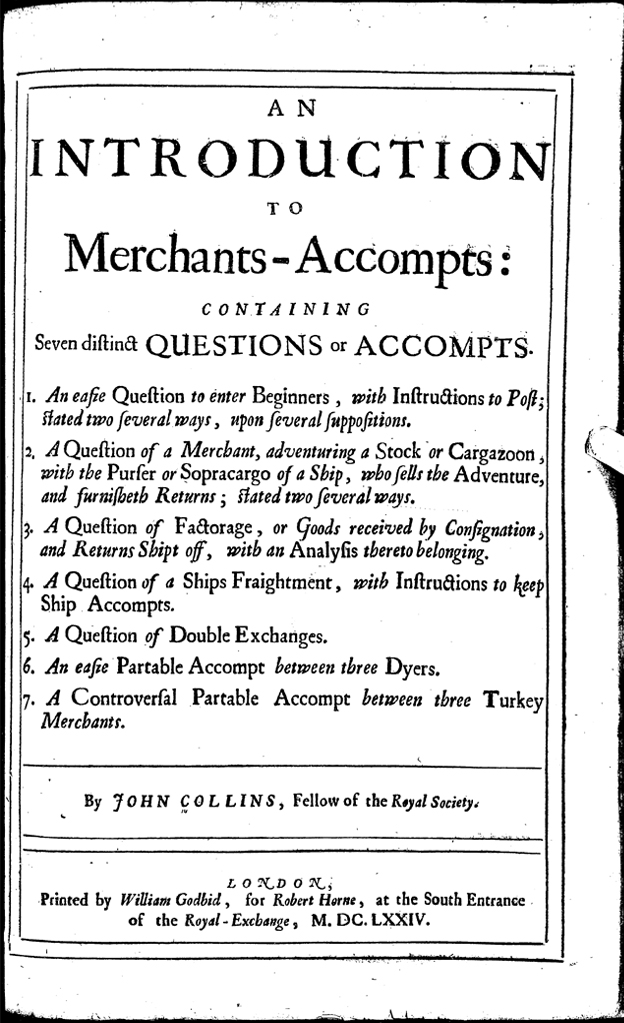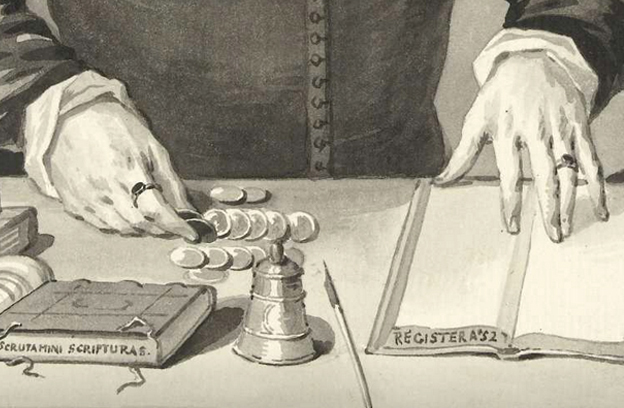We are excited to report that Dr Jackie Stedall and Dr Philip Beeley, the latter a former Research Fellow on Cultures of Knowledge (where he worked on the letters of mathematician John Wallis), have been awarded a major AHRC grant for a new early modern correspondence project on ‘Mathematical Culture in Restoration England: The Life and Letters of John Collins’.
The three-year project, which gets underway in early 2014 and is a collaboration between Oxford’s Faculty of History and Mathematical Institute, will focus on the experiences and epistolary contributions of Collins (1625–1683), the London-based mathematical practitioner and intelligencer who was once described by astronomer John Flamsteed as ‘the English Mersenne’. Although marginal in current historiography, Collins was an important and ubiquitous figure whose multiple roles and competencies link pan-European intellectual debates on abstruse mathematical topics with global trade and the social and economic history of the late seventeenth-century metropolis.

Off on a Tangent: Collins tackles James Gregory’s construction for the rectification of a curve in a letter from 1672. Bodleian Library, MS Smith 45.
In his capacity as epistolary intelligencer, Collins − himself a Fellow of the Royal Society, to which he was elected in 1667 − corresponded extensively with the leading theoretical minds of the day, including Flamsteed, Wallis, and Newton. In particular, Collins was instrumental in encouraging the latter to publish his work, especially around the theory of fluxions, and thus did much to establish Newton’s reputation and credibility within the international Republic of Letters.

London Callings: Collins plied a variety of trades in the early modern capital.
Simultaneously, he was also a staunch advocate of practical mathematics – as he had it, ‘the promotion of mathematick learning’ – whose own career revolved not around high table and lecture theatre but was instead a precarious patchwork of occasional teaching, maritime adventure, ambitious but often flawed economic schemes, and toil over ledger books; Collins’ daily meatspace was populated not by thinkers and professors, but a rough-and-tumble community of merchants, sailors, booksellers, and clerks. He was thus uniquely placed to disseminate and apply new mathematical thinking within practical fields such as navigation, instrument-making, and accountancy – especially through his robust promotion of pedagogical publications – and illustrates like no other contemporary how the flourishing of mathematical sciences in late seventeenth-century Britain was as much the province of workshops, dockyards, and offices as of libraries, journals, and learned letters.

‘Practical mathematics’: Frontispiece to Collins’ popular 1674 introduction to accounting for merchants.
The project will result in two major outputs: a definitive scholarly edition of the 320 letters to and from Collins known to be extant; and the first monographic study of his life and work, which will contextualise his voluminous correspondence with material drawn from other contemporary letters, government and mercantile records, and parish registers. The editors will also be using the back-end editorial toolset within Early Modern Letters Online to organise their work on the corpus, while metadata from the edition will be made available within the discovery interface. Congratulations, Jackie and Philip!

